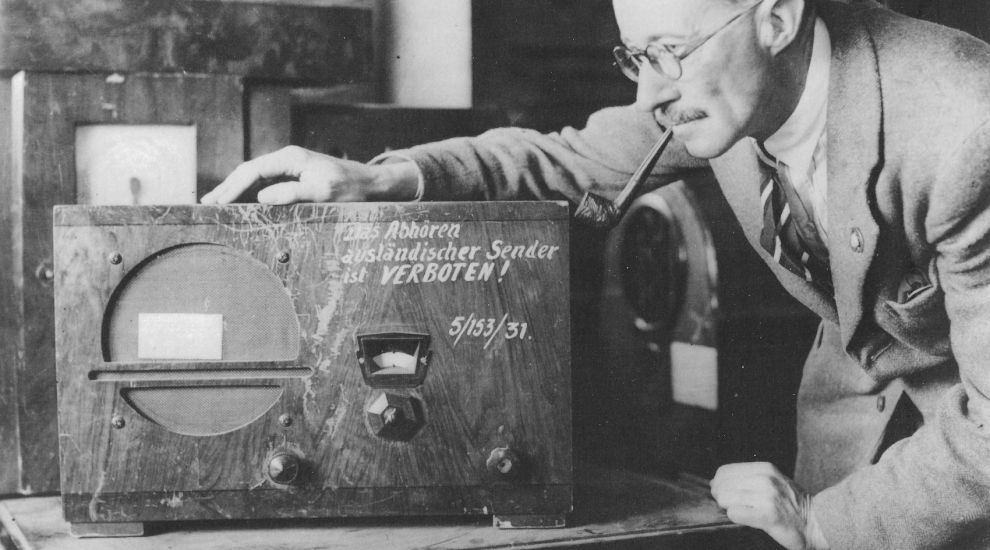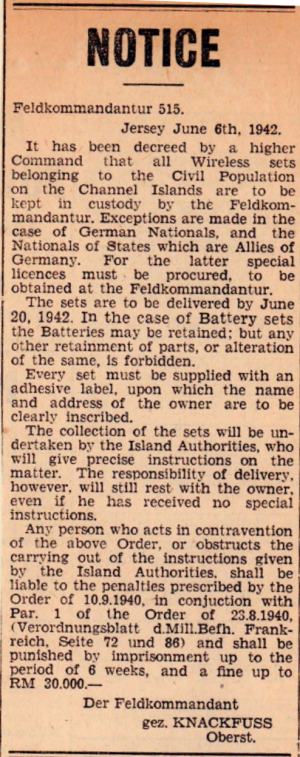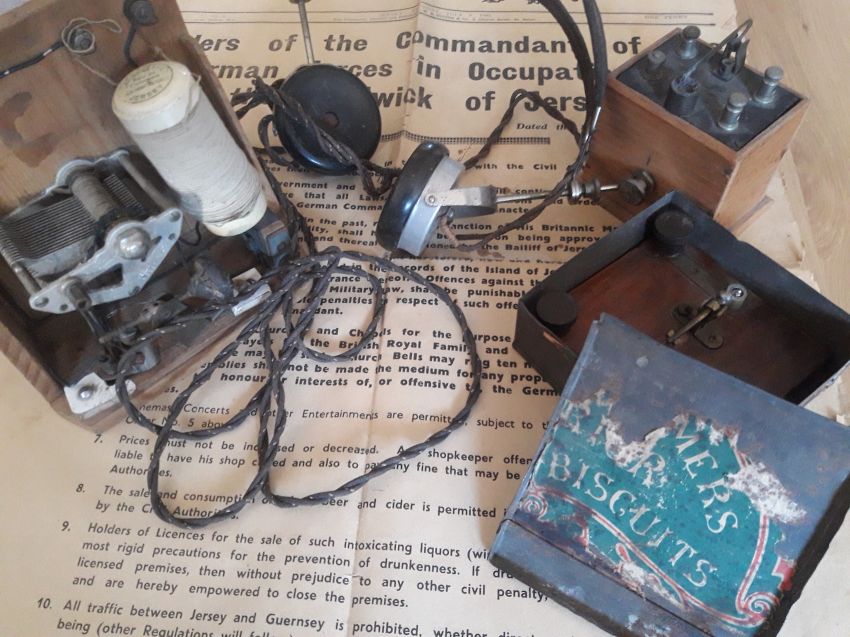


The 6th of June will always be remembered for D-Day, the Allied invasion in Normandy... However, two years previously, it was another significant day all in the Channel Islands.
Although today we take listening to music and the news on radio for granted, it’s hard to imagine life without it, but 80 years ago today, island residents were banned from doing so.
As soon as the German armed forces arrived in July 1940, they forbid the population from listening to any wireless transmitting stations, except German and German controlled stations. But they soon realised this was impossible to enforce, and the order was quickly withdrawn.
From quite early on, there was a strong feeling amongst the civilian population that the Germans were intending to confiscate all the radios on the island, which led to a notice being issued:
“Relying upon the loyal behaviour of the island population towards the German Forces, the German Military Authorities of their own resolve have not yet put into execution the confiscation of the wireless receiving sets which was announced. On the other side however, the granting of this privilege calls for a suitably loyal attitude on the part of the island population. Any misuse of this privilege or other disloyal attitude will result in the immediate withdrawal of this indulgence”.
In mid-1941, radio receiver sets in civilian cars and lorries were banned, and households were only permitted one radio or radiogram. Any additional sets had to be handed over to the German Authorities at the Terminus Building. At the same time, after a spate of V-signs had been daubed in Rouge Bouillon, the residents of that area had their radio sets confiscated, but these were returned after a few weeks, once the culprits had been caught.

Pictured: Civilian radios stored in Springfield, photographed just after the Liberation.
During 1942, the BBC had been broadcasting on the World Service, that an Allied invasion of the continent was imminent and had asked its listeners in occupied Europe to help the Allied invaders. Although the islands were unlikely to be invaded, the German High Command could not take that chance, and on Saturday 6th June 1942, the Field Kommandant, Colonel Knackfuss issued the following order:
“It has been decreed by a higher Command that all Wireless Sets belonging to the Civilian population on the Channel Islands are to be confiscated and retained in custody by the Feldkommandantur. Exceptions are made in the case of German Nationals, and the Nationals of States which are Allies of Germany. For the latter special licences must be procured, to be obtained at the Feldkommandantur.
"The sets are to be delivered by 20th June 1942. In the case of battery sets, the batteries may be retained; but any other retainment of parts or alteration of the same, is forbidden. Every set must be supplied with an adhesive label, upon which the name and address of the owner are to be clearly inscribed. The collection of the sets will be undertaken by the Island Authorities, who will give precise instructions on the matter. The responsibility of delivery, however, will still rest with the owner, even if he has received no special instructions.”
The order also stated that if any person who acts in contravention of the order or is obstructive, would be liable to punishment by imprisonment up to the period of six weeks and fined 30,000 Reichsmarks, which was an astonishing £3,000, over £161,000 in today’s money.

CLICK TO ENLARGE: The notice issued on 6 June 1942.
Despite the Bailiffs of both islands objecting, and the German Authorities on the island questioning the order, it had come from the Highest German Command and could not be overturned.
A few days after the confiscation order was issued, another small notice appeared in the Evening Post which stated:
“In recent issues of the ‘EP’ an order appeared in which the confiscation of wireless sets was decreed by the Higher Command. In conversation with the Field Commandant, it was learned that the confiscation of the sets is not to be regarded as a punishment but as a measure taken for military reasons. The confiscated sets will be carefully kept in safe custody.”
By Monday 22nd June 1942, over 10,000 wireless sets had been handed in and were stored in various locations around the island. In St. Helier, Springfield, the Masonic Temple and Woolworths were used to store the sets, which were more secure than the St. Clements storage facility, which was frequently broken into. Radios, valves and components were stolen on numerous occasions, which led the German Authorities to write a letter of complaint to the Bailiff. Interestingly, six radio related shops, including Bel Royal Radio, stayed open after the confiscation order, with some of these shops conducting illegal radio repairs.
Those who kept their radios risked serious penalties, and many islanders took to making homemade crystal radios. The basic principles for constructing a crystal set were broadcast by Colonel Britton on the BBC World Service, and several local electronic engineers began to produce crystal sets for friends and family, which allowed people to listen to the news illegally. A crystal radio set is the most basic type of radio receiver, and benefits from not having any power source, with just a radio headphone or a telephone receiver which could be used to listen in. Its simple small construction meant it could be easily hidden in a biscuit tin or in a discreet compartment under the stairs. The penalties if caught having an illegal radio or crystal set were severe with large fines or imprisonment.

Pictured: A collection of locally made crystal radio sets.
It was not just the islanders who were no longer allowed to listen to the radio, as a consequence of RAF bombing raids on Cologne, the German troops stationed at Highlands College were forbidden to listen to their wireless sets from the end of May 1942.
The civilian confiscated wireless sets stayed in storage until they were finally handed back to the owners after the Occupation, although many islanders remember seeing radio sets appear in the days leading up to the Liberation.
Pictured top: A civilian radio used by the Germans with the inscription, ‘It is forbidden to listen to foreign stations'.
Comments
Comments on this story express the views of the commentator only, not Bailiwick Publishing. We are unable to guarantee the accuracy of any of those comments.